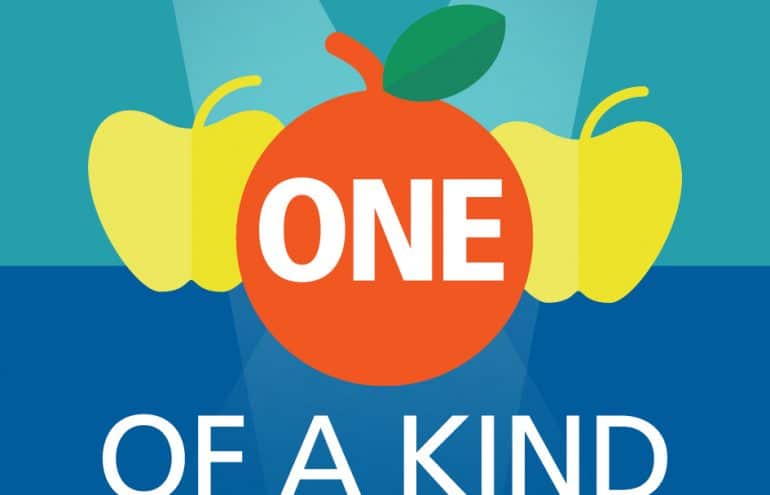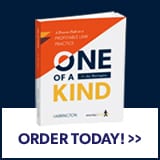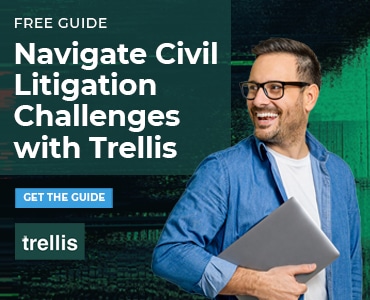One of the great story lines from the movie “Caddyshack” is Carl Spackler’s (Bill Murray) epic battle with the pesky golf course gopher. While the gopher proved to be a tougher adversary than Spackler expected, and ultimately outwitted the hapless greenskeeper, Spackler learned a few important lessons in his quest to rid Bushwood of the “varmint.” One of them — which I discuss below — actually has relevance to this article. So I’ve got that goin’ for me, which is nice.
Alas, as much as I’d like to devote this space to making tortured “Caddyshack” analogies, we’re really here to discuss content marketing. In a previous “One of a Kind” post, I focused on why content marketing is important, and why wisdom marketing is the next frontier in content marketing. In short, experts think deeply and write convincingly about important topics in the marketplace of ideas.
Here, we’ll focus on what, not why. What should you write about?
Gophers or General Counsel: Know Your Audience
First, be purposeful and intentional about determining the audience you are writing for. Building credibility through content marketing does little good unless you’re focused on the right people.
So how to go about this? Simply follow an old axiom, one that Spackler adopted in his futile gopher hunt: Know your audience. “My foe, my enemy, is an animal. And in order to conquer an animal, I have to think like an animal, and — whenever possible — to look like one. I’ve gotta get inside this guy’s pelt and crawl around for a few days.”
Spackler was hunting gophers, you’re hunting clients, but the principle is the same. Know your audience, what makes them tick and what they care about. Then let the “hunt” begin.
A Conversation, Not a Lecture
The primary objective of content marketing is to build reputation and project expertise in the marketplace of ideas. Done well, content marketing raises your profile and helps nail down business opportunities. A prerequisite of any content marketing initiative, therefore, is developing content that clients and potential clients consider valuable and interesting. In other words, content they want to read and that they learn something from.
There are two ways to approach this. First, you can make an educated guess based on your experience and expertise as to what content to produce. This is not an unreasonable, nor ineffective, approach, and is the one that most legal content marketers adopt. The problem is that you may not know whether the topics you choose address the needs and desires of your intended audiences.
The second approach — which should be a fundamental building block of any effective content marketing program — is to elicit feedback, both before launching, and in the midst of, your content marketing initiative. Ask your audiences what they are interested in. Not only will this lead to good topics, but it will help you craft a story — rather than a dry analysis — around the business challenges your clients face.
By having a two-way conversation with members of your audience, you’ll make them feel like they are part of the process, and they will be invested in your content.
While there’s no secret recipe for engaging your audience, there are a number of tactics that work well. Some lawyers and law firms do a great job of eliciting feedback from clients. If you have an active client feedback processes already established, simply add content exploration to the mix of topics discussed. A less formal, but equally effective approach, is to ask questions in the midst of routine interactions — lunch meetings, status calls and networking events — that reveal insights into the issues that keep members of your target audience up at night.
Your audience is a potent source of ideas for your content. Whatever approach you take, just be consistent and thoughtful. Otherwise, in the immortal words of Judge Smails, “You’ll get nothing and like it!”
Insight Mining Your Matters
Some of the best content ideas hide in plain sight. They reside in the emails, pleadings, documents and time entries of every lawyer at every firm. Deals and disputes are more than “matters,” they’re stories full of lessons others can learn from. To come up with content gold, simply mine insights from your matters.
Legal matters consist of fact patterns that must be gathered and understood. Then those facts must be analyzed in the context of relevant case law, statutes and regulations. While the specific circumstances of a particular matter are obviously unique and confidential, chances are that many other clients, or potential clients, of your firm have dealt or will deal with a similar scenario. And they can benefit from your experience, expertise and insights on the issue. But if you don’t get your ideas out there in front of them, how are they to know that you’re the right person to solve their problem?
Probably the most challenging aspect of insight mining is not coming up with topic ideas, but capturing them in an organized fashion for later use in your content marketing efforts. A great tool I use, as do many other writers, is Evernote. Take notes via Evernote — or whatever note-taking tool you prefer — and you’ll have a wealth of topics at your fingertips for later use.
“Newsjacking”
“Newsjacking” is content marketing jargon for a technique that generates great content ideas. Author David Meerman Scott coined the term, which he describes as “the process by which you inject ideas or angles into breaking news, in real-time, in order to generate media coverage for yourself or your business.”
By staying on top of breaking industry news, court decisions, and new statutes and regulations, and adding your unique perspective, you can position yourself as a thought leader.
There a few things to keep in mind, though, when newsjacking. First, be ready. Anticipate news (for example, keep an eye on when the Supreme Court will be issuing opinions) so that your analysis is one of the first to hit the content marketplace. Second, be fast but not too fast. Be mindful not to jump in too quickly, which can lead to getting the facts wrong. Third, be cautious about controversy. Newsjacking should be done in good taste. Consider how your community and your audience may react to a particular topic before posting something — the last thing you want is for your attempt to generate positive PR to turn into a crisis PR situation.
Technology Alone Is Not the Answer
Many great content marketing technology tools are available. While some believe that technology is the key to building a great content marketing platform, in reality it just makes the process more efficient. It’s no substitute for hard work and human engagement, which are the true content marketing building blocks.
Know your audience. Engage them to learn their interests. Then talk with them, not at them, in an authentic way through your content. That is the way to build a passionate audience.
ONE OF A KIND:
A Proven Path to a Profitable Law Practice
Practical advice for building a more profitable practice. Almost every lawyer wants to command higher rates and attract more clients. But many are stuck perusing ineffective strategies. Others don’t even know where to start. In his new book, lawyer-turned-legal marketer Jay Harrington lays out a path for lawyers to build a profitable practice.
























